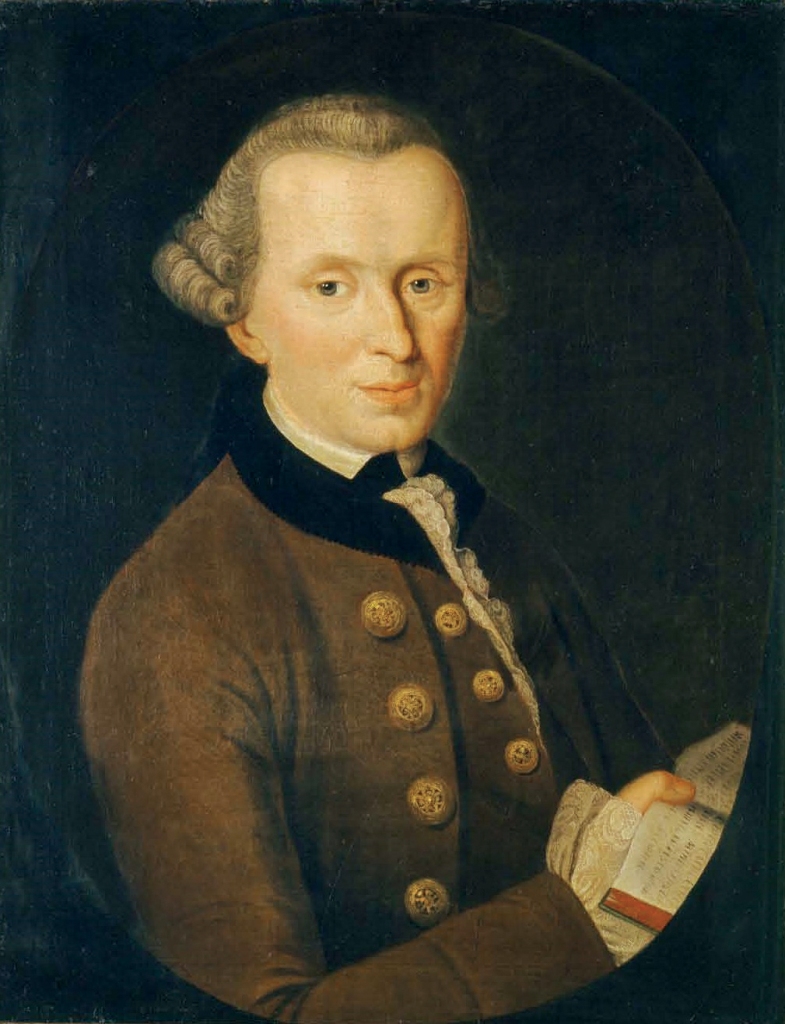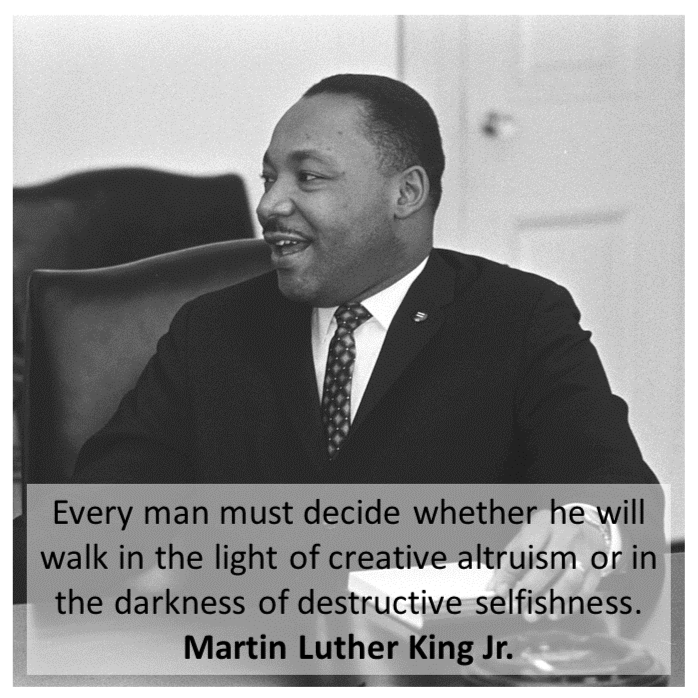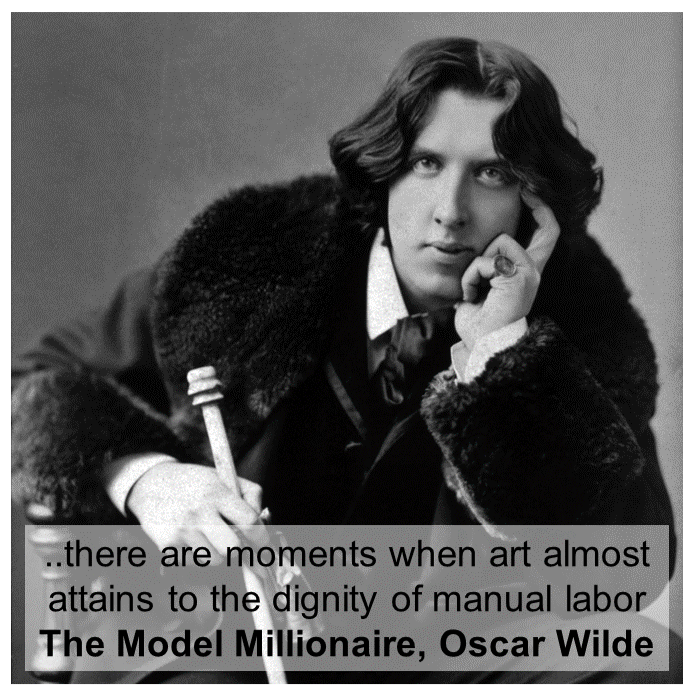Dilemma of morality in the character arc of Paul Atreides
Dune Part Two shows how any person would react when thrown into the events where morals and ethics clash. Dune Part Two is about the creation of the antihero and his blind hero worship. It is important because it breaks down and effectively depicts the stages in which even a humble and good-hearted person can degenerate. Surrounding around such person has big role in it.
The focus of Dune saga is on the ill-effects of hero worship. Frank Herbert warned the readers of Dune about the life altering consequences of granting too much power in the hands of a person who refrains to be questioned by his followers. Superficially, Dune feels like a story where Bene Gesserit – a low lying powerful sisterhood planting an extremely powerful but manipulable Messiah to control the galaxy and how this Messiah ruins that plan. Deep down, Dune successfully amalgamates many philosophical, psychological concepts like Existentialism, Hero worship/ herd mentality, confirmation bias, free will and determinism.
Denis Villeneuve’s Dune Part Two has successfully translated the vision of Frank Herbert’s 1965 Sci-Fi which is more relevant than anything in the current times of 21st century. In Dune Part Two you see the transition of a young, humble, calm boy into an aggressive, extremely powerful leader – a leader who is worshiped like the God by his followers. As a fan of Sci-Fi movies, I would say Denis Villeneuve’s Dune movies have made justice with what the source material wanted to convey. (Historically, Dune series is known to be one of the most difficult materials to adapt into visual media)
The discussion hereon is not a movie review rather it is about how some fantastic philosophical, psychological, spiritual, and political ideas are brought together to create a more relevant story which is purely fictional. Despite being a fiction, it successfully depicts some important real-life scenarios and dilemmas we face in our very real lives. This all is credited to Frank Herbert and Denis Villeneuve’s vision.
There will be heavy spoilers for Dune Part Two hereon!!!
After watching Dune Part Two it is obvious that it is all about how an antihero is created. There is a moment in the end when you will lose the sympathy for Paul’s character because of the choices he makes and it is intentional. The movie gives us multiple viewpoints to justify why Paul Atreides becomes who he is. Obviously, his antihero arc creates a deep void in our heart. When I started to understand the narrative from Paul’s perspective, I stumbled upon some of the important ideas we use to justify our actions, decisions.
Boundaries of Right or Wrong – What is Moral? What is Ethical?
Let us understand the stages in which Paul is always rejecting the leadership – the prophecy of Messiah he is offered every time.
Rejection 1 – Paul has not demonstrated any grand act yet. He lacks clarity, vision.
Right from the beginning, Paul knows what it means to become the Lisan al-Gaib – the Messiah. You will see him rejecting the concept of becoming the prophesized leader. In Dune Part One you will see that he asks Leto Atreides, his father – What if he does not want to be the leader, the future of house Atreides? In response, Paul understands from Duke Leto that leadership is not a personal choice and when there will be a moment in which people will choose him as their leader and he will have to answer that call. The fear of leadership in Paul here is created due to very superficial simulation of future possibilities. He hasn’t even landed in Arrakis – the desert Planet. Here, Paul is just a well behaved, properly trained royalty who hasn’t tasted the reality of life yet. He theoretically understands the burden of leadership, the burden of the expectations of the people and that why humbly rejects it – as it is the ‘right’ thing to do. Understand that Paul’s rejection in this instance is because he doesn’t consider himself worthy. It is unethical for him to accept leadership which is granted just from the birthright. Understand that prophecy of Messiah is not apparent here, this is the leadership of his House.
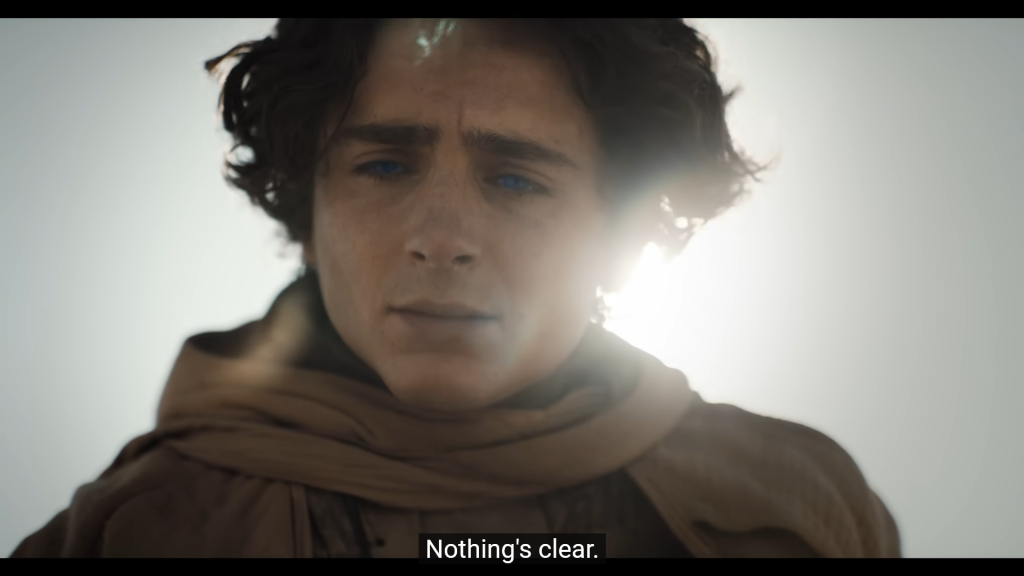
Rejection 2 – The prophecy is just a clever plan. There is clarity on what and how events will happen but no clarity on what will cause them.
When Paul lands with his mother Lady Jessica on Arrakis he looks at the local Fremen people chanting his name as the one who was promised to free them from this exploitation of the foreigners – the Harkonnens for the precious Spice Mélange. Here, Paul understands from his mother that the religious Bene Gesserit sisterhood has planted a very meticulous storyline – a prophecy to ease out their path on Arrakis. The knowledge of ‘the prophecy’ being just a clever plan of Bene Gesserit sisterhood consoles Paul that he will always have the choice to reject the future responsibility of leadership. This rejection of leadership is due to understanding of the underlying truth and how hopeless people are getting fooled. Utilizing such false knowledge for self-benefit makes Paul uncomfortable.
Rejection 3 – Paul has clarity but doesn’t want to take the advantage of the Fremen Faith
After the death of Leto Atreides, Paul escapes to Fremen territory with Lady Jessica. Fremen accept him as he shows his skills in a fair fight. From this moment his goal is to survive with Femen’s to acquire the ‘Desert Power’ as desired by his father Leto Atreides. He still despises the Bene Gesserit Propaganda. He knows he will be fooling the Fremen by following the said prophecy. It is not ethical to utilize others’ faith for the personal benefit. That is why Paul is just trying to learn the ways of Fremen to avenge his father’s unjust murder orchestrated by the Emperor through House Harkonnen.
There is a discussion between Lady Jessica (who is now Reverand Mother) with Paul where she says that the prophecy has given Fremen people something to hope for and to fight for. This is the exact moment when Paul actively and aggressively rejects what she says.
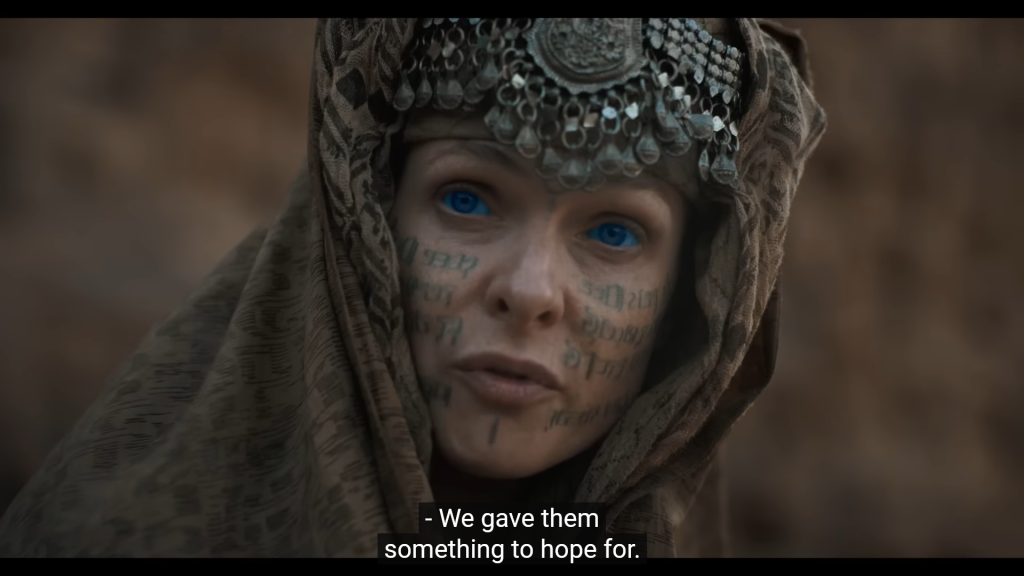
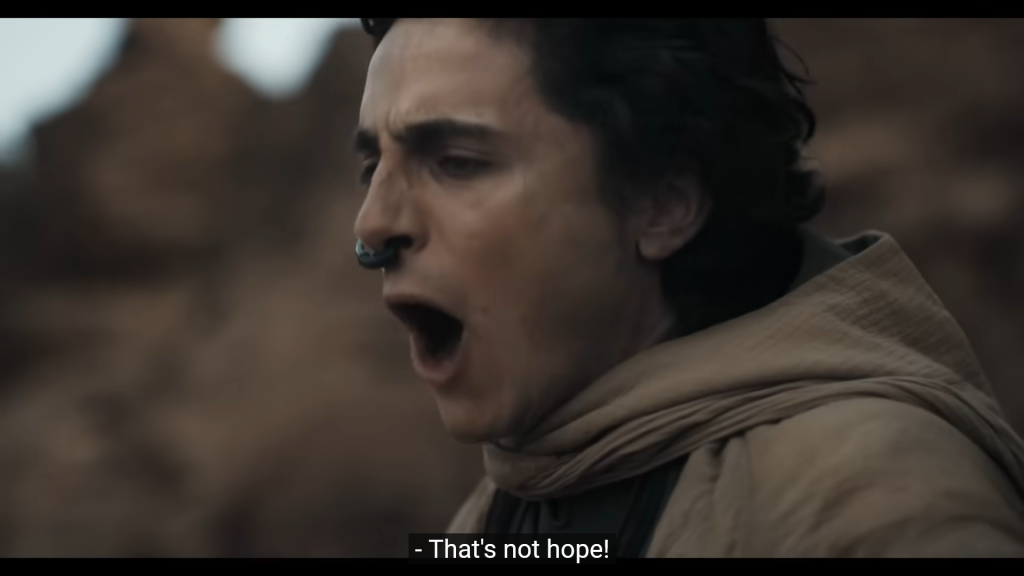
Paul – It’s not prophecy.
It’s a story that you keep telling.
It’s not their story, it’s yours.
They deserve to be led by one of their own.
His rejection to leadership here is because it is unethical to play with other people’s faith.
Rejection 4 – Paul loves Chani. He knows the moment he accepts ‘the prophecy’ he will lose her.
There is a scene where Chani tells Paul that the Fedaykin worship him now, they count his victories. Chani (who doesn’t believe in the prophecy) warns him that people have already started worshiping him and this will not end well. To counter Chani’s fear Paul positively clarifies that he is not the Messiah and will always be a Fremen warrior – the Fedaykin. Paul mentions several times to Chani that he will love her as long as he breaths. As the prophecy goes, he should reserve his hand for the most strategic alliance which is with the Princess Irulan – the daughter of Emperor. Here, the rejection is due to the love he has for Chani.
Rejection 5 – Paul knows that while becoming the Mahdi, he will lose his comfortable connect with Fremen. He will have blood of billions on his hands.
Upon the encounter with Gurney Halleck, Paul clarifies certain important things. Gurney is surprised that even after having following of 200 people and millions more, why isn’t Paul taking advantage of the prophecy to avenge the death of his father? Paul tells Gurney that the moment he becomes the Messiah, he no longer be friends with Fremen, because even his Fremen friends will worship him as the God – Lisan al-Gaib. He considers it unethical to utilize the innocent beliefs and trust of the people for him for his personal benefit.
Gurney Halleck – With thousands of these guys you can take control of the entire planet. It’s your father’s dream. What you are afraid of?
Paul – Worship, Gurney. They used to be friends, now they are followers.
Gurney tells Paul that he holds the ability to avenge his father by accepting the prophecy. Then Paul clarifies that the moment he becomes the Messiah, the galaxy will be thrown into the holy war leading to deaths of billions of people. Paul doesn’t want their blood on his hand.
The rejection of prophecy here is due to fear of losing personal connect with the people who define and respect you. It is also because Paul wants to preserve his character.
At the end of the Dune Part Two, you know what exactly happened!
Are Morality and Ethics Objective?
So, even after having at least 5 concrete reasons to reject the prophecy, why does Paul decide to become the ruthless Messiah, Lisan al-Gaib? What made him lose all the ethical and moral standards he had preserved in him?
Simple and superficial answer to these questions is – the circumstances!
Deep down the answer is totally different. Let us understand what are morals and ethics
Morality is the sense of judging a decision, event or an action being proper or improper. Morality is the sense of what is right and what is wrong.
Ethics are detailed down, systematic small-small actions which show what doing good is. The opposite act of doing a good act will be doing a bad act.
Morality are the universal standards for right and wrong and ethics are the rules to implement this morality in daily practice.
Question – How is it decided whether certain act is good or bad?
This is where the trick starts.
The base line to decide morality or ethics is always changing. It is like deciding ‘What level of big picture are you talking about?’
Frank Herbert was very intentional while creating such moral ethical dilemma through Dune series. As you are introduced to Paul right from the start of his journey, from a kid to the Messiah, you know why he did what he did. His Great House was betrayed by the Emperor and the Harkonnens. They tried to kill him, his pregnant mother, and his people. The responsibility to handle Arrakis was forced down on his house by the Emperor. He had every reason to kill his enemies. Whatever act Paul did to avenge his father/ his house was right and justified.
Does that mean that “whatever” and “everything” that he did and would do is right?
The death of billions of people he would cause (as seen in his visions) will it be justified?
Many Fremens devoted and died to Paul’s cause, will their deaths be justified?
You will see that the moment you shift from Paul’s personal baseline of morality to the baseline of the ‘good for all’, you will appreciate why the same Paul – the Messiah – Lisan al-Gaib – the Savior is also ‘the destroyer’ for remaining others. Thus, it is important to define that baseline while judging his actions.
Philosophy of Morality
There are two ideas on how to decide this baseline for morality of given things.
Immanuel Kant says the duty assigned to you; your obligation decides the morality – The duty-based definition of morality.
John Stuart Mill says that whatever is good for most of all should be good for one – The utilitarian definition of morality.
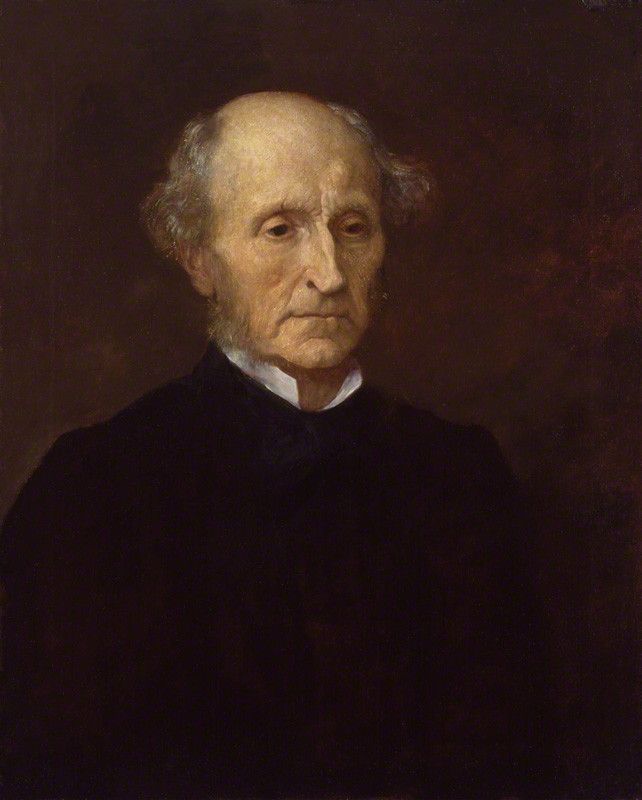
Lawrence Kohlberg’s stages of moral development give us a structured view about how the baseline to justify morality of anything works. This single image deserves a detailed explanation but it is self explanatory.
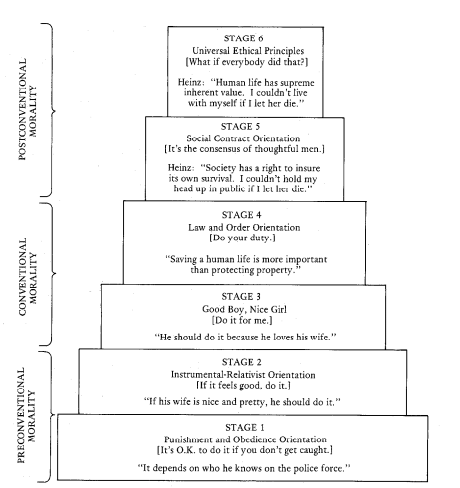
In Dune’s case, it was Paul’s duty to avenge his father’s unjust death hence he was right. Whereas letting his followers kill billions of people belonging to the houses who were not accepting his ascension as the Emperor was wrong – immoral. He commanded to destroy such opposing Great Houses just to establish respect for him out of fear. The intent was not pure.
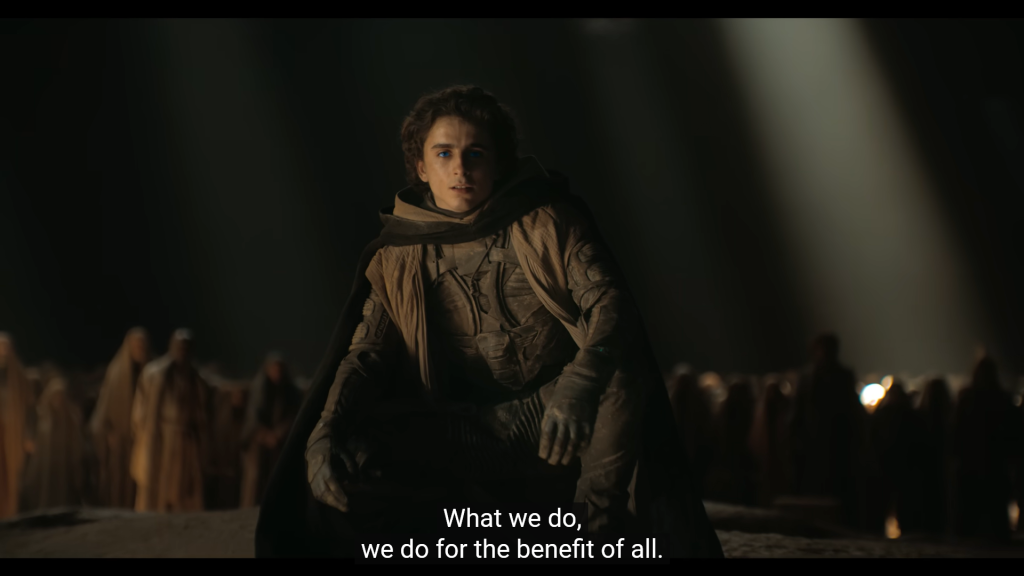
For Fremen, the act of destroying everyone opposing their leader is way better and important than living a life of slave. At the same time same Fremen killing billions in the name of their Mahdi is bad.
For Jessica, survival of her children was more important than anything. She had also promised Leto Atreides that she will save her children not as Bene Gesserit but as a mother first. That is why she eases out the path laid for Paul which guarantees his and his sister’s survival. You will understand that Jessica fears becoming the Reverand Mother, she knows that she will have to carry the pain and memories of all those who came before her but upon hearing to the clarification from Stilgar, she realizes that it is the only way to ensure the survival of her children. So, she controlling the Fremen and spreading the prophecy of the Messiah (despite knowing it as just a clever plan) feels moral.
Stilgar strengthening the events from the prophecy in the minds of Fremen ensure betterment of his people. If his actions to spread and strengthen the path for Paul would lead Fremens people to a better life then his actions are well justified. But, the moment he blindly follows every order from Paul to obliterate everyone opposing him his actions become wrong.
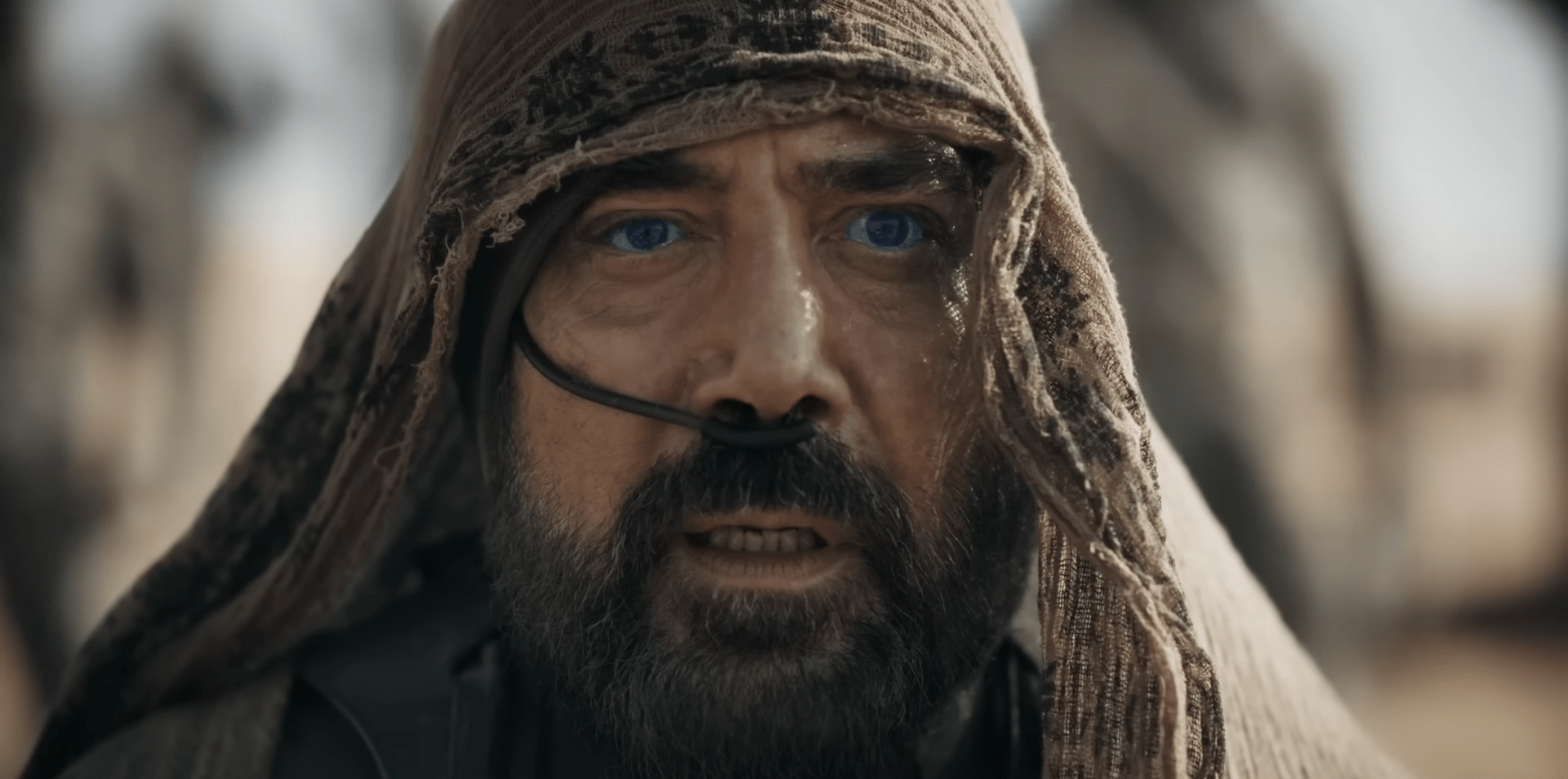
When it comes to mere survival of Feyd-Rautha, Baron Harkonnen, Rabban, the Emperor, Princess Irulan, Reverend Mother Mohiam someone would feel that their actions are justified. (But, we already have many other reasons to assign them villainy.)
It’s like checking which one is more wrong – Killing an ant or murdering a person!
The moment you favor the life of the person than an ant, you will feel bad for what kind of animal you are. And the moment you favor life of that ant over the person you will feel bad as a human being.
Taking any life is bad in the end, but what if it’s about survival. Then it goes in the direction which poses question – whose life is more precious?
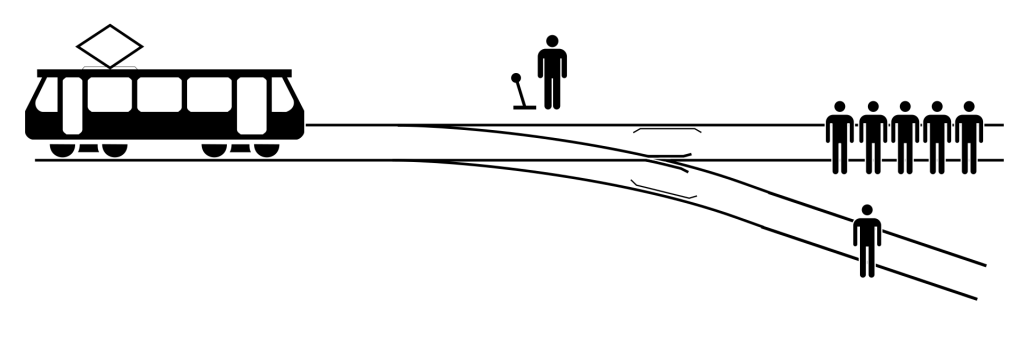
Do you see how this streak goes on and on! This will not end until the questioner will be satisfied with comfortable answer!
One must appreciate the genius of Frank Herbert’s writing which created such important intersecting points in his story.
Power and Aesthetics
So, final question – what ultimately is the right or wrong?
The answer is how deeply are we able understand the scenario (and we may never understand every aspect most of the times.) Actions are always changing with respect to the circumstances, killing a murderer will always be justified and right at the same time killing a Saint is wrong.
This reminds me of Nietzsche’s quote:
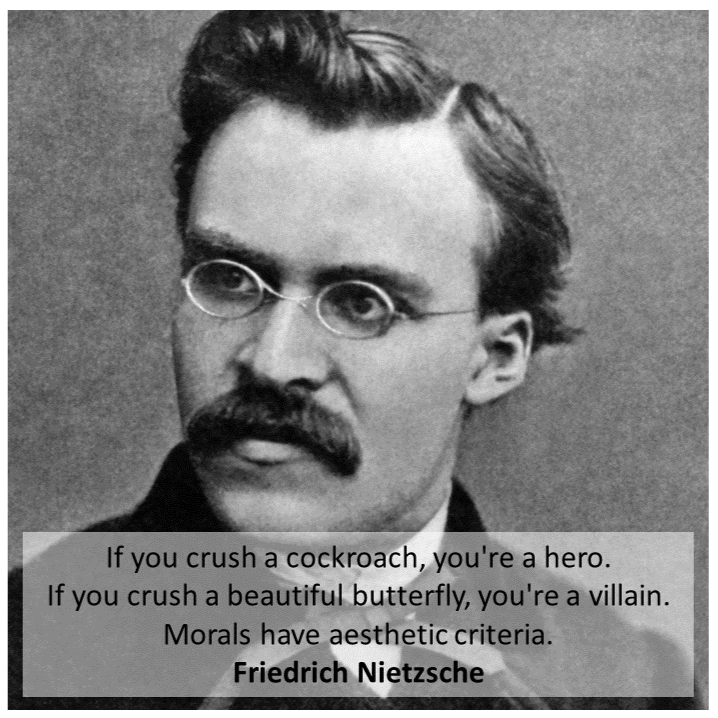
Thus, the dilemma grows bigger.
What is right and what is right is highly dependent on your limits, your capabilities, your ability to reverse the things to exactly how they were before. If you don’t hold that capacity, then you immediately lose the power to justify your actions.
Which is exactly why what Paul believes is completely wrong, it shows how Paul character has made transition…
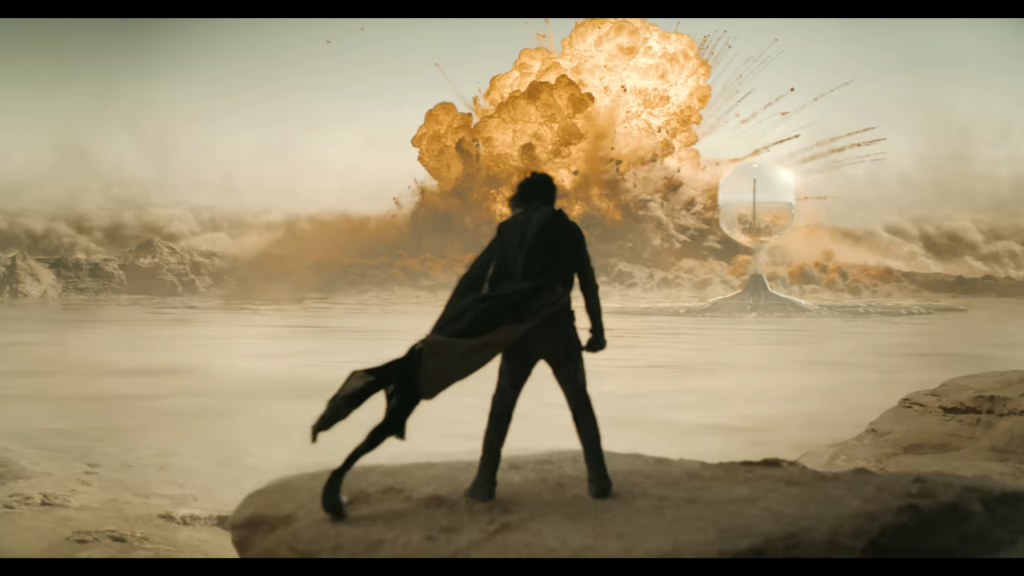
The power will enable him to destroy any given thing; but can he reverse that destruction if things did not turn out the way he intended? The ability to restore the consequences of your decisions decides whether you hold the power to assign good or bad.
If Paul does not bear the capacity to reverse or at least restore the impact of his decisions, then he is wrong to send his followers in that direction.
I think, this is the warning Frank Herbert gives to the real-life leaders and followers among us. This is exactly where powerful people go wrong and take their blind followers with them.
So, even though his intent was to avenge his father by becoming the Messiah, the path he would choose is wrong.
The path Jessica chose to control the Fremen through prophecy is wrong. The plans Bene Gesserit orchestrated to plant a powerful yet manipulatable person on Arrakis just to have control over Spice are wrong. There are always multiple choices,
(The conclusion of the Paul Atreides’s story and ‘Dune: the God Emperor’ will make us change our current opinions. That we will discuss again when the time is right.)
Anyways words fail me when such real-life scenarios are flawlessly presented through fiction. There is no need for anyone to teach us what is right or wrong in such stories. The dynamics of the events and the characters show us the mirror. We always have such inner compass inside ourselves, stories like this are the greatest calibrator of such inner compasses.
The power to restore the consequences of our action is the real power, I think. This idea somewhat frees the justification of our actions from the dilemmas of morality.
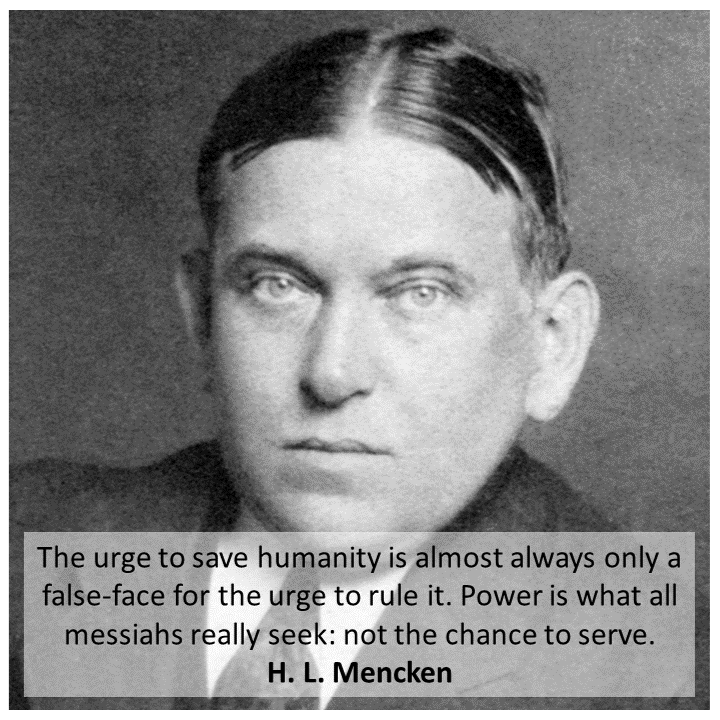
There is more to discuss about Dune, find out here….
(Movies Scenes from Warner Brother’s Dune: Part Two)
Further reading:


